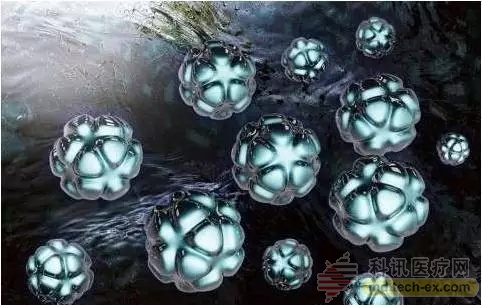Release date: 2016-08-18 Nanoparticles. Image source: Thinkstock Pancreatic cancer is currently one of the most deadly and chemotherapy-resistant cancers. Recently, Australian cancer researchers have developed a very promising nanomedical approach that will improve the treatment of pancreatic cancer. This technology transports drugs that silence specific genes in nanoparticles and transports them to pancreatic tumors, which is expected to provide pancreatic cancer patients with alternatives to traditional treatments such as chemotherapy. Experiments in mice have shown that this new nanomedical approach reduces tumor growth by 50% and also slows the spread of pancreatic cancer. The study, published in Biomacromolecules, was conducted by scientists at the University of New South Wales (UNSW). It brings new hope to most patients with pancreatic cancer who can only survive for 3-6 months after diagnosis. Dr. Phoebe Phillips, from the UNSW Lowy Cancer Research Centre, is the principal investigator of the study. She said that whenever her doctor colleagues had to tell patients with pancreatic cancer, even if Doctors are actually very intolerant when the best chemotherapy drugs can only help them extend their life for 16 weeks. Dr. Phillips said: "The main reason why chemotherapy does not work is that pancreatic tumors have a wide range of scar tissue, which can account for 90% of the entire tumor. Scar tissue acts as a physical barrier that prevents drugs from reaching the tumor, causing pancreatic cancer. Chemotherapy resistance of cells." She recently explained: "Recently, we have discovered a key gene that promotes the growth, spread and resistance of pancreatic cancer - βIII-tubulin. Inhibition of this gene in mice not only reduces tumor growth by half, It also slows the spread of cancer cells." However, in order to clinically inhibit this gene, it is necessary to overcome the difficulty in administration: over the scar tissue of the pancreatic tumor. To solve this problem, Australian researchers have developed a nanomedical approach that encapsulates tiny RNA molecules (which can be understood as copies of cellular DNA) in advanced nanoparticles that are able to reach the tumor. The βIII-tubulin gene is inhibited to a large extent. These investigators have demonstrated the feasibility of novel nanoparticles in mouse experiments. Their nanoparticles are capable of delivering therapeutic doses of microRNA to mouse pancreatic tumors in the presence of scar tissue and successfully inhibiting βIII-tubulin. "The importance of our nanomedical technology is that it promises to inhibit any tumor-promoting genes, or to suppress a 'private-customized' set of genes based on the patient's tumor gene expression," Dr. Phillips said. "This result will help people develop new treatments for this drug-resistant cancer and improve the effectiveness of existing chemotherapy methods to improve the survival and quality of life of patients with pancreatic cancer." references Biomacromolecules (2016). DOI: 10.1021/acs.biomac.6b00185 Source: DeepTech Deep Technology
Quinoa rice is rich in iron and phosphorus, which can promote the production and absorption of red blood cells in the human body. Quinoa rice is rich in magnesium, manganese and other minerals, which can promote the metabolism of glucose in the human body, so as to control blood sugar. It is also rich in The plant protein can improve human immunity and enhance physical fitness.
Jilin Yomi Agricultural and Sideline Products Import and Export Co.LTD. focusing on building a green base, building a characteristic industrial chain, deepening the channel supply chain, vigorously developing export trade, and leading the development direction of the entire industry; insisting on green development, promoting the concept of health, and making every effort to build a national leading enterprise in the organic grain industry.
Quinoa Rice,Quinoa Rice Blend,Quinoa Yellow Rice,Quinoa Brown Rice Yomifresh , https://www.yomifresh.com